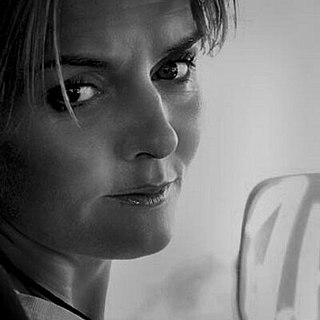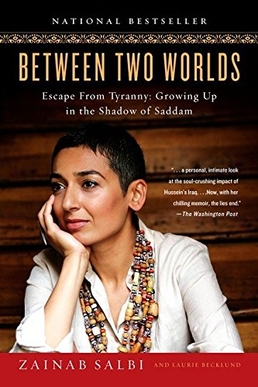
The Italian Armed Forces encompass the Italian Army, the Italian Navy and the Italian Air Force. A fourth branch of the armed forces, known as the Carabinieri, take on the role as the nation's military police and are also involved in missions and operations abroad as a combat force. Despite not being a branch of the armed forces, the Guardia di Finanza has military status and is organized along military lines. These five forces comprise a total of 340,885 men and women with the official status of active military personnel, of which 167,057 are in the Army, Navy and Air Force. The President of the Italian Republic heads the armed forces as the President of the High Council of Defence established by article 87 of the Constitution of Italy. According to article 78, the Parliament has the authority to declare a state of war and vest the powers to lead the war in the Government.

Médecins Sans Frontières, named Doctors Without Borders in English, is a charity that provides humanitarian medical care. It is a non-governmental organisation (NGO) of French origin known for its projects in conflict zones and in countries affected by endemic diseases. The organisation provides care for diabetes, drug-resistant infections, HIV/AIDS, hepatitis C, tropical and neglected diseases, tuberculosis, vaccines and COVID-19. In 2019, the charity was active in 70 countries with over 35,000 personnel; mostly local doctors, nurses and other medical professionals, logistical experts, water and sanitation engineers, and administrators. Private donors provide about 90% of the organisation's funding, while corporate donations provide the rest, giving MSF an annual budget of approximately US$1.63 billion.

The International Rescue Committee (IRC) is a global humanitarian aid, relief, and development nongovernmental organization. Founded in 1933 as the International Relief Association, at the request of Albert Einstein, and changing its name in 1942 after amalgamating with the similar Emergency Rescue Committee, the IRC provides emergency aid and long-term assistance to refugees and those displaced by war, persecution, or natural disaster. The IRC is currently working in about 40 countries and 26 U.S. cities where it resettles refugees and helps them become self-sufficient. It focuses mainly on health, education, economic wellbeing, power, and safety.
Humanitarian aid workers belonging to United Nations organisations, PVOs / NGOs or the Red Cross / Red Crescent are among the list of protected persons under international humanitarian law that grant them immunity from attack by belligerent parties. However, attacks on humanitarian workers have occasionally occurred, and become more frequent since the 1990s and 2000s. In 2017, the Aid Worker Security Database (AWSD) documented 139 humanitarian workers killed in intentional attacks out of the estimated global population of 569,700 workers. In every year since 2013, more than 100 humanitarian workers were killed. This is attributed to a number of factors, including the increasing number of humanitarian workers deployed, the increasingly unstable environments in which they work, and the erosion of the perception of neutrality and independence. In 2012 road travel was seen to be the most dangerous context, with kidnappings of aid workers quadrupling in the last decade, reaching more aid workers victims than any other form of attack.

The Conrad N. Hilton Foundation is an American non-profit charitable foundation, established in 1944 by hotel entrepreneur Conrad Hilton. It remained relatively small until his death on January 3, 1979, when it was named the principal beneficiary of his estate. In 2007, Conrad's son, Barron Hilton announced that he would leave about 97% of his fortune to a charitable remainder unitrust which names the foundation as the remainder beneficiary.

War Child International is a network of three independent non-governmental organisations: War Child UK, War Child Holland, and War Child Canada, each legally, operationally, and financially independent but sharing a common brand identity and mission to support children and young people affected by armed conflict and war. They work with parents, caregivers, community members, NGOs, governments, corporations, and other partners worldwide to ensure children have access to protection, education and psychosocial support. War Child has its work rooted in the United Nations Convention on the Rights of the Child.
Alight, formerly the American Refugee Committee (ARC), is an international nonprofit, nonsectarian organization that has provided humanitarian assistance and training to millions of beneficiaries over the last 40 years.
A mine clearance organization, or demining organization, is an organization involved in the removal of landmines and unexploded ordnance (UXO) for military, humanitarian, or commercial reasons. Demining includes mine clearance, as well as surveying, mapping and marking of hazardous areas.
Sally Becker is a British humanitarian aid worker, best known for her work during the Bosnian and Kosovo Wars in the late 1990s. She is the founder of charities Road to Peace and Save a Child. She is credited with saving hundreds of lives through her actions in the Balkans, and was frequently referred to in the British media as the "Angel of Mostar".
A special representative of the Secretary-General is a highly respected expert who has been appointed by the Secretary-General of the United Nations to represent them in meetings with heads of state on critical human rights issues. The representatives can carry out country visits to investigate alleged violations of human rights and act as negotiators on behalf of the United Nations.

Zainab Salbi is an Iraqi American women's rights activist, writer, television show host, and podcaster. She is the co-founder of Women for Women International, a non-profit organization that helps women affected by sexual violence and conflict. She hosted Through Her Eyes and #MeToo, Now What? television shows, about issues affecting women. From 2022 she hosted the Redefined podcast.

Staffan de Mistura is an Italian-Swedish diplomat, United Nations official and former member of the Italian government.
MERCY Malaysia or Malaysian Medical Relief Society is a non-profit organisation focusing on providing medical relief, sustainable health related development and risk reduction activities for vulnerable communities in both crisis and non-crisis situations. As a non-profit organisation, MERCY Malaysia relies solely on funding and donations from organisations and generous individuals to continue their services to provide humanitarian assistance to beneficiaries, both in Malaysia and internationally. The organisation is a registered society according to the Societies Act 1966 in Malaysia, and the headquarters is in the capital city of Kuala Lumpur.

Australian military involvement in peacekeeping operations has been diverse, and included participation in both United Nations sponsored missions, as well as those as part of ad hoc coalitions. Indeed, Australians have been involved in more conflicts as peacekeepers than as belligerents; however, according to Peter Londey "in comparative international terms, Australia has only been a moderately energetic peacekeeper." Although Australia has had peacekeepers in the field continuously for 60 years – the first occasion being in Indonesia in 1947, when Australians were among the first group of UN military observers – its commitments have generally been limited, consisting of small numbers of high-level and technical support troops or observers and police. David Horner has noted that the pattern changed with the deployment of 600 engineers to Namibia in 1989–90 as the Australian contribution to UNTAG. From the mid-1990s, Australia has been involved in a series of high-profile operations, deploying significantly large units of combat troops in support of a number of missions including those in Cambodia, Rwanda, Somalia and later in East Timor. Australia has been involved in close to 100 separate missions, involving more than 30,000 personnel and 11 Australians have died during these operations.

David James Shearer is a New Zealand United Nations worker and politician. He was a member of the New Zealand Parliament for the Labour Party from 2009 to 2016, serving as Leader of the Opposition from 2011 to 2013.

Katherine Emily Holt is a British photojournalist, who works primarily across Africa and the Middle East to gather humanitarian and development stories for NGOs and private companies, as well as the UK and global media. She is also the director of communications agency, Arete.

The International Women of Courage Award, also referred to as the U.S. Secretary of State's International Women of Courage Award, is an American award presented annually by the United States Department of State to women around the world who have shown leadership, courage, resourcefulness, and willingness to sacrifice for others, especially in promoting women's rights.
Qatar Charity is a humanitarian and development non-governmental organization in the Middle East. It was founded in 1992 in response to the thousands of children who were made orphans by the Afghanistan war and while orphans still remain a priority cause in the organization's work with more than 150,000 sponsored orphans, it has now expanded its fields of action to include six humanitarian fields and seven development fields.
Solidarités International is a non-profit organization working in areas of conflict and natural disasters. Its main aim is to provide quick and effective support for people in life-threatening situations by meeting their vital needs: water, food and shelter. The organization also has a particular focus on unsafe drinking water and food insecurity among the most vulnerable populations. Solidarités International, an organization founded in 1980 by Alain Boinet under France's 1901 charity law, comprises 2 350 national and international employees. Each year it carries out over 120 humanitarian programs in 20 countries.

Between Two Worlds: Escape from Tyranny: Growing Up in the Shadow of Saddam is a 2005 memoir by Zainab Salbi.












